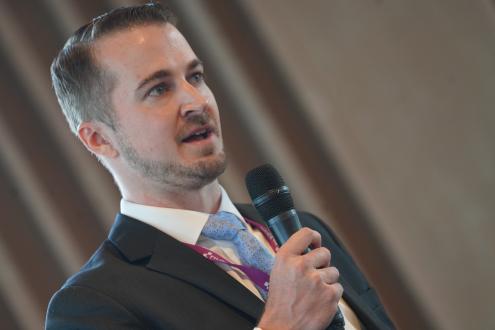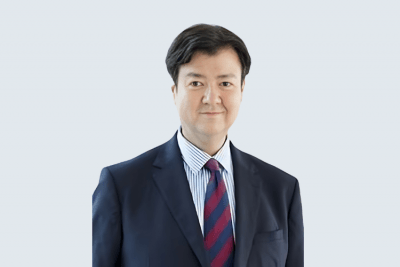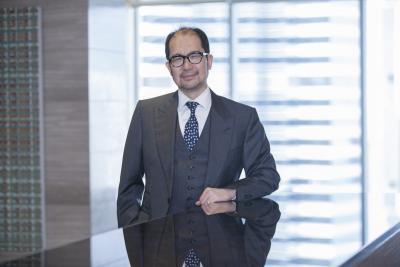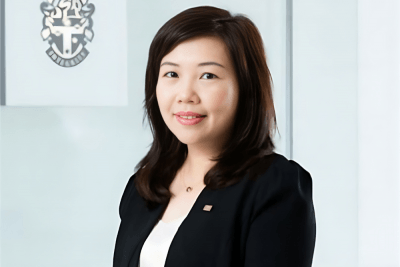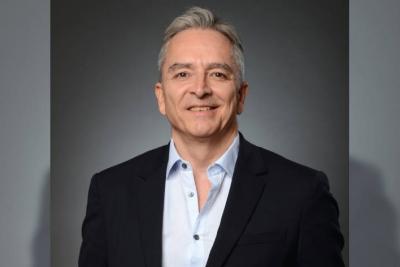Henley & Partners’ Scott Moore Reviews Key Findings from the Henley Private Wealth Migration Report 2023
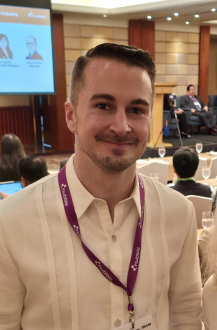
Scott Moore, IMCM of Henley & Partners
Sep 21, 2023
Both regionally and internationally, there are more first-generation entrepreneurs than ever before, according to Scott Moore, Managing Director and Head of the Indonesia and Philippines offices at investment migration firm Henley & Partners. He told delegates at the Hubbis HNW Insurance Summit in Singapore in early September that these individuals and their families are increasingly seeking out avenues of greater self-governance, with domicile diversification becoming essentially a crucial insurance policy for wealthy individuals and their families against economic, political, climate, geopolitical and financial volatility around the world. Moreover, for wealthy families of all types and from all regions, there are numerous fiscal, education, lifestyle, healthcare and other advantages to overseas residence or citizenship by investment options. Scott offered delegates a lively and entertaining talk explaining about how Henley & Partners can help deliver a variety of services to wealthy Asian families seeking greater global flexibility.
Scott introduced Henley & Partners to those who did not know the firm, which he said had been at the cutting edge of the global investment migration sector for several decades, advising both governments on their programmes and private clients on their various alternatives for residence or citizenship around the globe.
The firm’s teams and their clients (both governments and affluent individuals and families) know only too well that the world today remains unstable and challenging in so many ways. Here we are in 2023, and in just the past few years, we have all had to confront the global pandemic, the war in Ukraine, surging inflation, rising or stubborn interest rates, falling markets, and to top it all, numerous other geopolitical crises are bubbling under, potentially ready to boil over.
Wealth = mobility
But amidst all these troubles, Scott explained that high-net-worth (HNW) and ultra-high-net-worth (UHNW) clients are well positioned as they have the financial wherewithal, and often the time and the connections, to diversify their residence or even citizenship options, not just for themselves and their spouses, but potentially for their children, and their grandchildren.
A growing and global industry
Henley & Partners essentially created the concept of residence and citizenship planning back in the 1990s. As globalisation has expanded, residence and citizenship have become topics of significant interest among the increasing number of internationally mobile entrepreneurs and investors the firm serves today.
The firm’s government advisory practice has helped governments raise more than USD 12 billion in foreign direct investment through many successful residence and citizenship programmes they helped design and establish.
Worldwide coverage
Henley & Partners today offers fully global investment migration advisory services through its worldwide operation of over 40 offices, including three relatively new offices in the US, which interestingly has become a major source of clients in recent years as outward residence diversification by wealthy US citizens and families has risen substantially. And the firm has for many years been publishing its now-famous Henley Passport Index, with Singapore, Japan, and South Korea currently at or very near the top as their passports give visa-free access to 189 destinations or more.
Scott told guests that investment migration is not a typical form of insurance, but that it has all types of protection and risk mitigation elements, most evidently in recent years during the pandemic for those who were stuck in countries with throttling lockdowns and poor healthcare and support infrastructure.
Learning by example
Scott told guests that one of his Southeast Asia clients had invested in European citizenship for himself and his family well before the pandemic, and when it hit he was able to get an emergency medical evacuation to Europe, which saved his life because of the passport that he invested in.
“Life and death - that is how important this can be to people and their families,” he commented. “And in a purely financial arena, I can tell you about an Indonesian patriarch who knew little about regulation, but who had built a bridgehead pre-pandemic into Singapore on the Global Investor Programme, which has helped them ring-fence offshore assets and safeguard against some of the reporting ramifications of CRS when it began to be applied. The family already had a son there with a portion of their wealth, spending more than 183 days per year in a very tax-friendly jurisdiction already.”
He also told the story of a property sector Filipino client who had invested in a golden visa in Spain, and had spread their development expertise there, and successfully diversified markets, currencies, and also regulatory burdens.
Thinking a century ahead
“And you might think this is somewhat left-field, but there are already some very wealthy clients coming to our office in Zurich or perhaps one of our offices in the United States, and they might be already beyond the fabled third generation of wealth, they are already planning a century into the future, thinking long and hard about climate change and resilience. They are often seeking residence in countries in the northern hemisphere, perhaps buying large tracts of land for their family, and in the southern hemisphere perhaps buying into New Zealand and building some hidden bunkers.”
Scott said all these are reasons why Henley & Partners thinks of investment migration as a form of insurance, and therefore, very much part of the wealth management ecosystem today as individuals and families plan well ahead for their futures.
Where to and where from?
He turned his attention to where HNWIs and UHNWIs are going and where they are coming from, pointing to findings published in the recent 2023 Henley Wealth Migration Index. He said their analysis focuses on those individuals with investable assets of over USD 1 million, but the Henley Private Wealth Migration Dashboard figures focus only on people who have truly moved, namely, those who stay in their new country for more than half of the year. He noted that in the world of investment migration, many wealthy individuals acquire residence rights for countries but never relocate to those countries.
The wave builds
The number of millionaires migrating each year has climbed steadily for many years, Scott reported, noting that for 2023, their forecast is 122,000, whereas only 10 years ago in 2013 that number was only 51,000. He also highlighted how the number had grown steadily to 2019 when it was 110,000, before slumping to just 12,000 in 2020 due to the global pandemic. However, since then, growth has been remarkable, surging back to 84,000 by 2022 with Henley & Partners now forecasting 122,000 for 2023. “The numbers keep on growing, and this is a trend that we believe will continue as mobility gets more affordable and easier,” Scott reported.
Cost is not the same as value
Then the key question is: Where are these individuals going? The answer was on page 8 of the slide show, and the results show that Australia is racing ahead in terms of net inflows of millionaires, with Singapore, the US, Canada and France also acting as magnets for increasing inward wealth migration.
Meanwhile, the UAE enjoyed dramatic growth in 2022, but the numbers will drop back somewhat this year, and among other notables, the net inflow of millionaires moving to Switzerland will drop back modestly in 2023 and Portugal’s numbers are also falling.
“Why would more wealthy people want to head to high-tax Australia?” Scott pondered. “Well, actually, if you have already made your money, Australia has its appeals as there are no estate duties, which is a great bonus. And geographically, Australia acts as a magnet for a lot of the wealth that is produced in Asia, they have a very diverse economy there, there is security and a great lifestyle on offer.”
The UAE has been very busy
He elaborated on the UAE, noting that its Golden Visa programme was a huge draw since 2022, with 92% of those moving there going to Dubai.
“They have very successfully branded themselves as a destination where entrepreneurs and HNWIs want to relocate, they have made it far easier to open businesses, to invest in real estate and to obtain a visa for yourself and the family,” Scott reported.
He said it is rather like Singapore would have been in the 1990s when it was fairly easy to get permanent residence if you had the right education and attributes. “And note that the UAE does not have the same type of land space challenges as Singapore, and they are trying to increase their population dramatically within the next decade,” Scott added.
Singapore appeals, the US loses its sheen
And Singapore itself continues to act as a major magnet for wealth, set to draw in a net influx of another 3,200 millionaires plus, up from 2,900 in 2022. “Singapore is very simply the dominant hub for millionaires, for family offices, not only in Southeast Asia but globally,” Scott stated.
But Scott reported that the US, which used to attract rising numbers until 2019 when the pandemic hit, has seen a rapid drop-off in demand from outside. Henley & Partners estimates the net inflow of 2,100 in 2023 will be higher than in 2022 but dramatically below the 10,800 registered in 2019 before the pandemic struck.
“The low numbers today still could be linked to Joe Biden's proposed scrapping of the Trump tax cuts, which were largely to benefit of the wealthier,” Scott commented. “But another reason is the perceived domestic unrest and instability in the US.”
China’s exodus
China has also been a major loser of its millionaire stock for over a decade, with an estimated net outflow of 13,500 millionaires due to depart China’s shores this year, up from an already significant 10,800 in 2022. “These outflows are negative for China and the economy,” Scott said. “India has also suffered but to a lesser extent and the numbers leaving this year are likely to be lower than in 2022, as optimism in the country continues to rise in many areas.”
Scott also noted that Russia had a major net exodus of millionaires in 2022 as the war in Ukraine exploded, but the numbers were far lower than anticipated, as Russia made it more difficult to leave, including making it difficult potentially to access money at home if overseas. “There has been a clear backlash against people leaving, and we have even seen people returning despite the war and troubles there,” Scott explained.
The UK’s stock is falling
The UK has seen a major net millionaire exodus, as the government changed its ‘non-dom’ status rules. Scott noted that before that change, people could be permanently resident as a ‘non-domicile’ in the UK mean, allowing them to avoid tax on their offshore income. But that changed in 2017 and had the millionaires in the UK literally leaving in droves.
“Most of these millionaires and billionaires that are leaving are reaching the time limit of their resident non-domiciled tax status,” Scott explained. “And senior executives are also moving to the European Union to ensure they have better access to European markets. And the mood towards the non-doms, even among the incumbent Conservative government, is negative.”
Scott also explained that of the top 10 countries winning more millionaires to their shores, all except France have an investment migration program.
Henley’s expansive vision
Drawing his short presentation towards a close, Scott also focused delegates' attention on the Henley Passport Index, reporting that for the first time ever, Singapore was top of the rankings on its own, offering its citizens visa-free access to 192 countries globally. At the other end of the spectrum is a country like the Philippines, with visa-free access to only some 30% of the world’s GDP, compared with Singapore’s more than 80% reach.
Finally, he highlighted Henley & Partners’ new research project around digital assets. He said the firm had just released the world’s first report on crypto-friendly investment migration jurisdictions, and Singapore ranks highest, with one in nine people holding crypto assets, and Switzerland ranks 2nd, but by a large margin, and the UAE is 3rd.
And his last word was on Henley & Partners Education consultancy, delivering global expertise to private clients thinking about where to send their offspring and grandchildren to schools and universities worldwide. “Education is a perfect complement for residence and citizenship by investment,” Scott concluded. “While studying overseas, you can naturalise and you can get a passport if you've studied under an investor visa, as is the case for Canada, Australia, the UK, and the United States. It is a valuable part of the overall forward planning for these families.
Getting Involved
Interested in being part of the discussion? Be sure to save the date of our Hubbis HNW Insurance Summit – Singapore 2024, which is taking place on Wednesday 4th September, 2024.
Register for the forum by CLICKING HERE.
Want to find out more about how you can take part? Get in touch at [email protected].

Managing Director at Henley & Partners

More from Scott Moore, IMCM, Henley & Partners
Latest Articles


